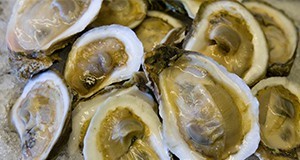Resumen
Vibrio vulnificus occurs naturally in warm brackish and saltwater environments. During the warmer months, this bacterium can reach particularly high concentrations in filter-feeding shellfish that inhabit coastal waters. Foodborne illness from V. vulnificus is almost exclusively associated with consumption of raw oysters. This 3-page fact sheet is a major revision that discusses risk of infection, times to seek medical treatment, symptoms, activities related to illness, foods commonly associated with the bacterium, handling and storage of seafood and shellfish, and methods of prevention. Written by Anita C. Wright, Renée M. Goodrich, Michael A. Hubbard, and Keith R. Schneider, and published by the UF Food Science and Human Nutrition Department. Original publication date: July 2009. Revised: October 2015.
FSHN09-02/FS147: Preventing Foodborne and Non-foodborne Illness: Vibrio vulnificus (ufl.edu)
Citas
Centers for Disease Control and Prevention (CDC), Division of Emergency Preparedness and Response. 2014. "Vibrio vulnificus After a Disaster." Accessed September 3, 2015. http://www.bt.cdc.gov/disasters/vibriovulnificus.asp
Florida Department of Health (FDH). n.d. "Vibrio vulnificus." Accessed September 3, 2015. http://www.floridahealth.gov/diseases-and-conditions/vibrio-infections/vibrio-vulnificus/index.html?utm_source=ac
Food and Drug Administration (FDA). n.d. "Food Code 2013." Accessed September 3, 2015. http://www.fda.gov/Food/GuidanceRegulation/RetailFoodProtection/FoodCode/ucm374275.htm
Jones, M. K. and J. D. Oliver. 2009. "Vibrio vulnificus: Disease and Pathogenesis." Infection and Immunity 77(5): 1723-1733. doi:10.1128/IAI.01046-08. https://doi.org/10.1128/IAI.01046-08
Smith, D. C., P. H. Schmutz, and E. H. Hoyle. 1999. Vibrio vulnificus. HGIC 3663. Clemson Cooperative Extension. Accessed September 3, 2015. http://www.clemson.edu/extension/hgic/food/food_safety/illnesses/hgic3663.html

